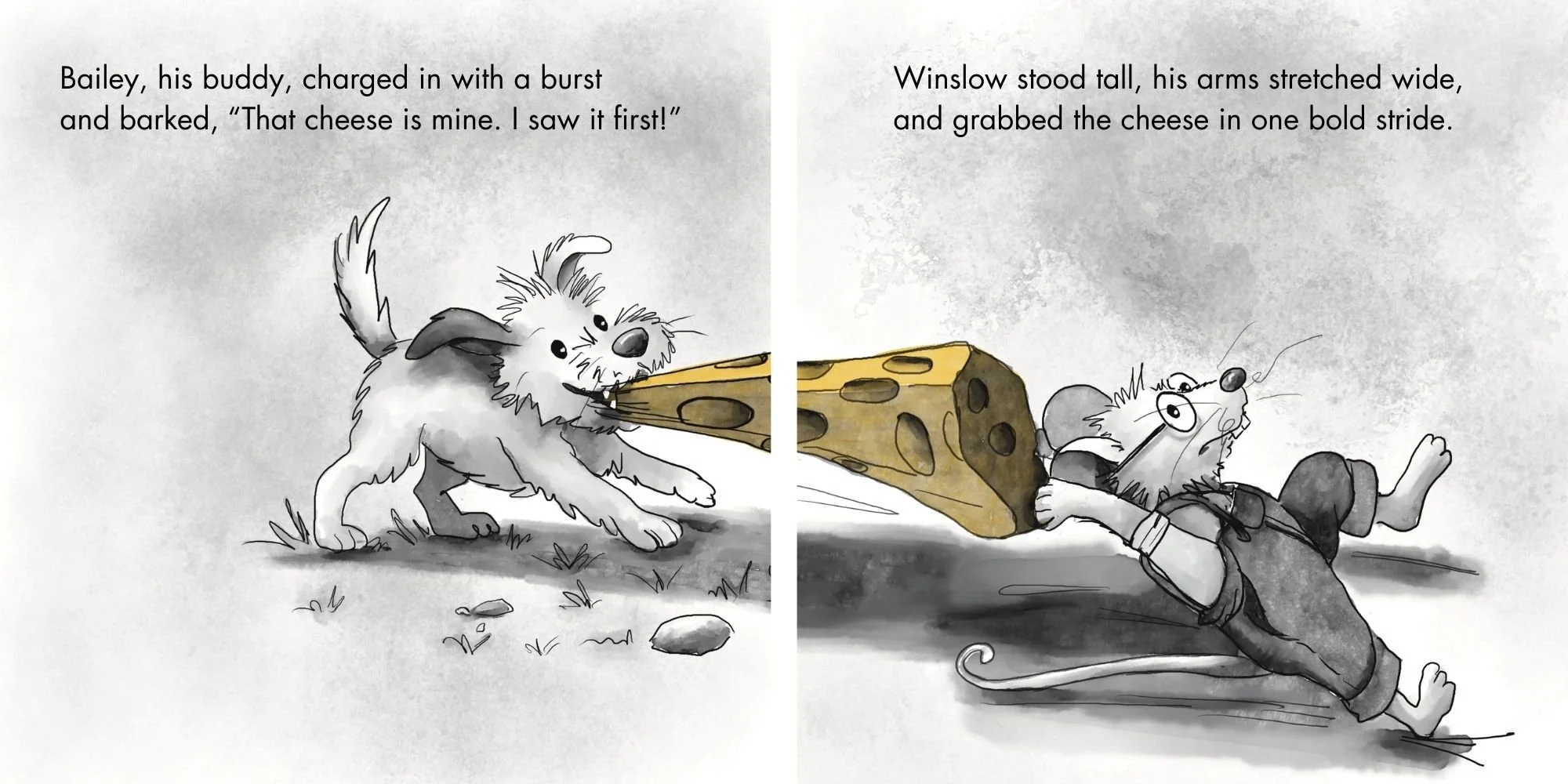Helping Competitive Kids Lose with Grace (Inspired by Winslow Whiskerby)
Losing is hard. But friendship? That’s the real win.
I’ve always been fascinated by how children respond to challenge, especially when they don’t win.
Sometimes it’s a quiet sigh.
Other times? Stomping feet. Tears. A dramatic exit stage left.
Even though my own daughter is now grown, I remember those early days. I also see it play out now with friends’ children, at festivals, and in everyday moments, when big emotions bubble up in small people.
And to be honest?
I wasn’t exactly a graceful loser myself.
As a kid, I was wildly competitive. Board games, races, card games, well…I wanted to win. Not in a mean-spirited way, just... determined. I didn’t always handle it well when I didn’t come out on top. Honestly, I still don’t love losing.
So maybe it’s no surprise that Winslow Whiskerby and the Cheesy Chase came out of me.
It’s a story about a whiskered little rat who spots the cheese of his dreams and gets swept up in the idea of being first, being right, being the winner. But what he finds instead is something far more important: the power of choosing connection over competition.
That story led me to reflect on what we can do, as parents, grandparents, teachers, and caring adults, to help competitive kids (and grown-ups, too) learn to lose with grace.
So I created this tip sheet. These are five playful, practical ideas to help little ones lose well, and grow big in the process.
1. Normalize Losing as Part of Play
Talk about your own experiences.
Let kids know that losing isn’t a failure, it’s a normal, often valuable part of being human.
2. Praise Effort, Not Outcome
“You really focused on that.”
“I noticed how you stuck with it.”
When you praise the process, kids start seeing value in persistence and not just winning.
3. Use Stories to Spark Reflection
Books like Winslow Whiskerby and the Cheesy Chase let kids see characters make mistakes, struggle, and come out wiser on the other side. Storytelling opens a safe space to talk about feelings.
4. Practice “Losing” in Safe Spaces
Create low-stakes games at home, silly guessing games or hide-and-seek with no real prize. Let them win. Let them lose. Make it fun. That’s where emotional resilience starts.
5. Help Them Repair, Not Retreat
When tempers flare, offer gentle scripts like:
“Would you like to try that again with kinder words?”
These are the building blocks of empathy and emotional recovery.
Winslow's journey is filled with crumbs, chaos, and a runaway squirrel, but at its heart, it’s about pausing, reconnecting, and remembering that friendship is the real win.
If this resonates with you, feel free to download the tip sheet here:
And if you’d like to bring Winslow’s story home, The Cheesy Chase is now live on Kickstarter with limited edition bundles, signed books, and exclusive rewards.
Thanks for being part of Winslow’s whiskered world—and for helping raise kind, resilient kids through the power of story.

